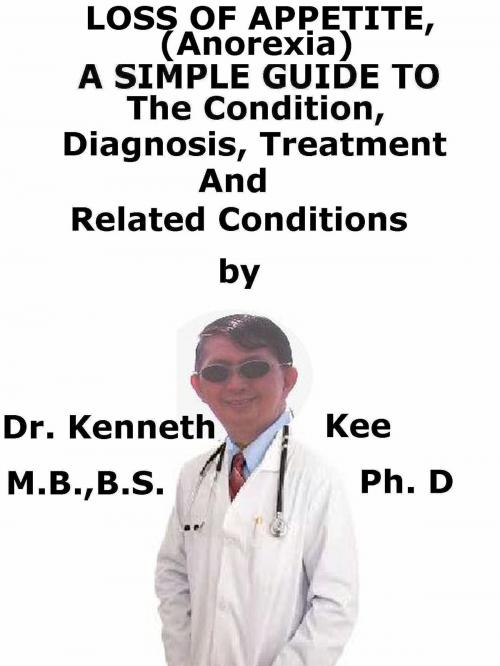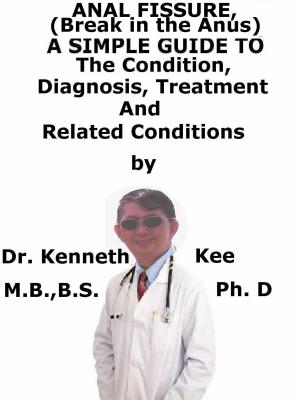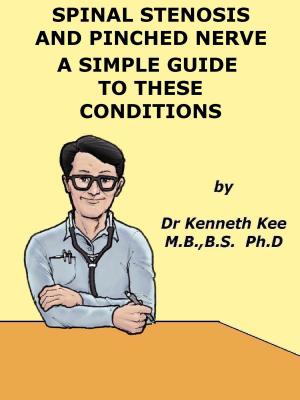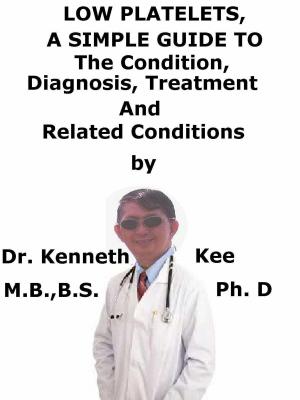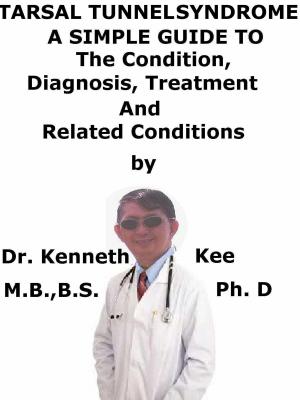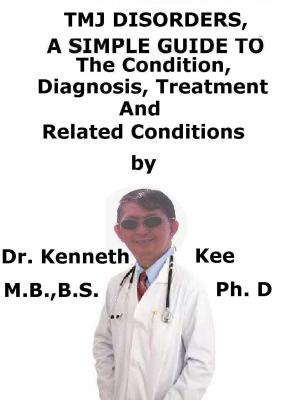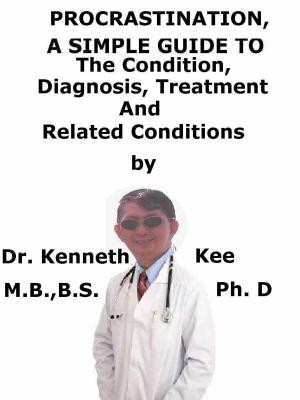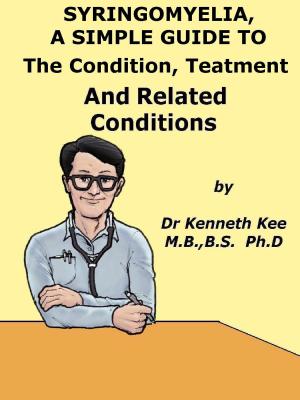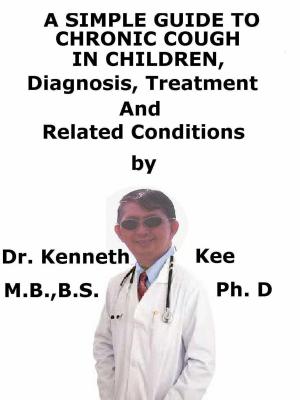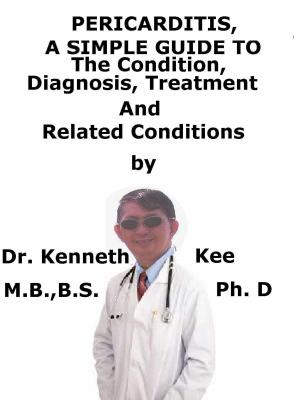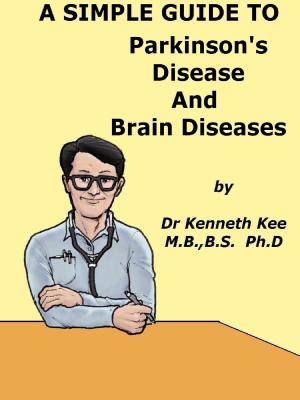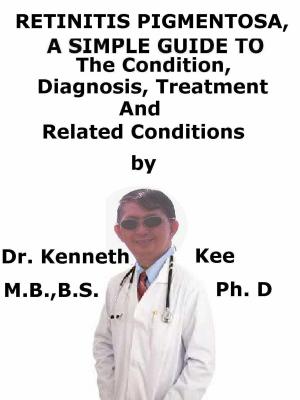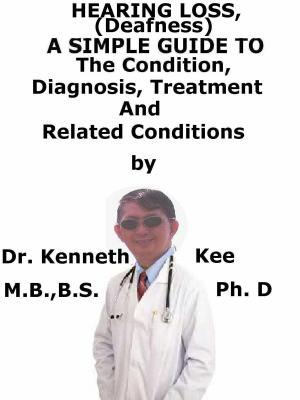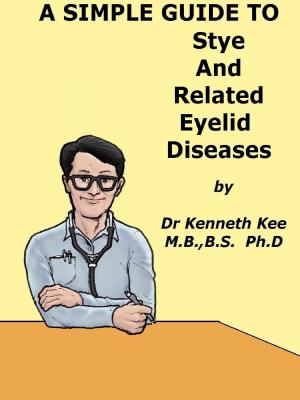Loss of Appetite, (Anorexia) A Simple Guide To The Condition, Diagnosis, Treatment And Related Conditions
Nonfiction, Health & Well Being, Psychology, Eating Disorders, Health, Ailments & Diseases, Abdominal| Author: | Kenneth Kee | ISBN: | 9781370573905 |
| Publisher: | Kenneth Kee | Publication: | May 8, 2017 |
| Imprint: | Smashwords Edition | Language: | English |
| Author: | Kenneth Kee |
| ISBN: | 9781370573905 |
| Publisher: | Kenneth Kee |
| Publication: | May 8, 2017 |
| Imprint: | Smashwords Edition |
| Language: | English |
Loss of appetite is a symptom of a person eating less than what he or she normally takes.
The person may also not eat at all lasting anywhere from one meal to several days.
The disorder is also known as anorexia which is a symptom and not a disease.
Normally, when the disorder is relieved and treated, a person’s appetite should be normal again
Anorexia is not regarded a medical emergency since most people all around the world have it time and again throughout the course of their lives.
When a person does not eat for a long time, his or her body will become immuno-compromised and lose disease-fighting agents making the disorder serious in nature.
Some people may have loss of appetite only during certain periods of the day or for certain types of food while others do not take food and drinks altogether.
Causes
A reduced appetite is almost always seen in older adults.
Often, no physical reason is found.
Emotions such as sadness, depression, or grief can result in a loss of appetite.
Cancer can also produce reduced appetite.
Other causes of reduced appetite are:
1. Chronic liver disease
2. Chronic kidney disease
3. Chronic obstructive pulmonary disease (COPD)
4. Dementia
5. Heart failure
6. Hepatitis
7. Use of certain medicines, including antibiotics, chemotherapy drugs, codeine, and morphine
8. Use of street drugs, including amphetamines (speed), cocaine, and heroin
Loss of appetite may be linked with:
1. Anorexia nervosa,
2. Abnormal taste and
3. Food aversion
Symptoms
1. Significant unintentional weight loss
2. New-onset dyspepsia, age >55
3. Dysphagia
4. Symptoms raising suspicion of malignancy
5. Persistent low mood
6. Features suggesting alcohol dependence
7. Mini–mental state examination (MMSE) score, or equivalent, suggesting cognitive impairment.
Diagnosis:
BMI testing is important to check the weight against the height.
Further investigations are:
1. Blood tests
2. Helicobacter pylori stool antigen (if evidence of dyspepsia)
3. Chest X-ray if medically indicated
4. Ultrasound scan of the abdomen if indicated
5. Depression screening
6. An alcohol-use questionnaire, and
7. Mini mental state examination (MMSE), or equivalent, cognitive test
Treatment
People with cancer or a chronic illness require raising their protein and calorie intake by consuming high-calorie, nutritious snacks or several small meals during the day.
Liquid protein drinks may be useful.
1. Choose foods the patient really enjoys and make them look as attractive as possible.
2. Try small portions – eat only what the patient can manage and more often.
3. Using a small plate can be easier and less overwhelming.
4. Eat when the patient feels like eating – do not feel the patient need to stick to usual meal times.
5. Try softer foods that do not need much chewing, especially if the mouth is sore or the patient is finding it hard to swallow.
6. Try soup, milky puddings, porridge, yoghurt, ice cream, nutritious drinks and snacks.
7. If the smell of hot food makes the patient feel sick, try eating cold foods instead – foods like sandwiches, salads and cheese or quiche can be just as nutritious.
Loss of appetite can happen as a symptom of a disorder, such as depression, appendicitis, thyroid problems, infections and cancer.
Appendicitis may need surgery while depression may need psychotherapy and antidepressants.
Once infections are treated with antibiotics, appetite and health normally return.
Cancer treatments, such as radiation and chemotherapy may produce further decrease in appetite
Medicines such as megestrol (Megace), and dronabinol (Marinol), are normally given to help activate a person's appetite.
A pleasant eating environment can improve the appetite and eating habits.
TABLE OF CONTENT
Introduction
Chapter 1 Loss of Appetite
Chapter 2 Causes
Chapter 3 Symptoms
Chapter 4 Diagnosis
Chapter 5 Treatment
Chapter 6 Prognosis
Chapter 7 Anorexia Nervosa
Chapter 8 Cachexia
Epilogue
Loss of appetite is a symptom of a person eating less than what he or she normally takes.
The person may also not eat at all lasting anywhere from one meal to several days.
The disorder is also known as anorexia which is a symptom and not a disease.
Normally, when the disorder is relieved and treated, a person’s appetite should be normal again
Anorexia is not regarded a medical emergency since most people all around the world have it time and again throughout the course of their lives.
When a person does not eat for a long time, his or her body will become immuno-compromised and lose disease-fighting agents making the disorder serious in nature.
Some people may have loss of appetite only during certain periods of the day or for certain types of food while others do not take food and drinks altogether.
Causes
A reduced appetite is almost always seen in older adults.
Often, no physical reason is found.
Emotions such as sadness, depression, or grief can result in a loss of appetite.
Cancer can also produce reduced appetite.
Other causes of reduced appetite are:
1. Chronic liver disease
2. Chronic kidney disease
3. Chronic obstructive pulmonary disease (COPD)
4. Dementia
5. Heart failure
6. Hepatitis
7. Use of certain medicines, including antibiotics, chemotherapy drugs, codeine, and morphine
8. Use of street drugs, including amphetamines (speed), cocaine, and heroin
Loss of appetite may be linked with:
1. Anorexia nervosa,
2. Abnormal taste and
3. Food aversion
Symptoms
1. Significant unintentional weight loss
2. New-onset dyspepsia, age >55
3. Dysphagia
4. Symptoms raising suspicion of malignancy
5. Persistent low mood
6. Features suggesting alcohol dependence
7. Mini–mental state examination (MMSE) score, or equivalent, suggesting cognitive impairment.
Diagnosis:
BMI testing is important to check the weight against the height.
Further investigations are:
1. Blood tests
2. Helicobacter pylori stool antigen (if evidence of dyspepsia)
3. Chest X-ray if medically indicated
4. Ultrasound scan of the abdomen if indicated
5. Depression screening
6. An alcohol-use questionnaire, and
7. Mini mental state examination (MMSE), or equivalent, cognitive test
Treatment
People with cancer or a chronic illness require raising their protein and calorie intake by consuming high-calorie, nutritious snacks or several small meals during the day.
Liquid protein drinks may be useful.
1. Choose foods the patient really enjoys and make them look as attractive as possible.
2. Try small portions – eat only what the patient can manage and more often.
3. Using a small plate can be easier and less overwhelming.
4. Eat when the patient feels like eating – do not feel the patient need to stick to usual meal times.
5. Try softer foods that do not need much chewing, especially if the mouth is sore or the patient is finding it hard to swallow.
6. Try soup, milky puddings, porridge, yoghurt, ice cream, nutritious drinks and snacks.
7. If the smell of hot food makes the patient feel sick, try eating cold foods instead – foods like sandwiches, salads and cheese or quiche can be just as nutritious.
Loss of appetite can happen as a symptom of a disorder, such as depression, appendicitis, thyroid problems, infections and cancer.
Appendicitis may need surgery while depression may need psychotherapy and antidepressants.
Once infections are treated with antibiotics, appetite and health normally return.
Cancer treatments, such as radiation and chemotherapy may produce further decrease in appetite
Medicines such as megestrol (Megace), and dronabinol (Marinol), are normally given to help activate a person's appetite.
A pleasant eating environment can improve the appetite and eating habits.
TABLE OF CONTENT
Introduction
Chapter 1 Loss of Appetite
Chapter 2 Causes
Chapter 3 Symptoms
Chapter 4 Diagnosis
Chapter 5 Treatment
Chapter 6 Prognosis
Chapter 7 Anorexia Nervosa
Chapter 8 Cachexia
Epilogue
